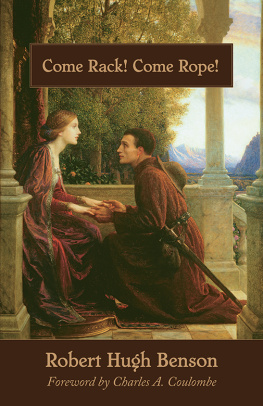Robert Hugh Benson - The Religion of the Plain Man
Here you can read online Robert Hugh Benson - The Religion of the Plain Man full text of the book (entire story) in english for free. Download pdf and epub, get meaning, cover and reviews about this ebook. year: 2017, publisher: TAN Books, genre: Science. Description of the work, (preface) as well as reviews are available. Best literature library LitArk.com created for fans of good reading and offers a wide selection of genres:
Romance novel
Science fiction
Adventure
Detective
Science
History
Home and family
Prose
Art
Politics
Computer
Non-fiction
Religion
Business
Children
Humor
Choose a favorite category and find really read worthwhile books. Enjoy immersion in the world of imagination, feel the emotions of the characters or learn something new for yourself, make an fascinating discovery.

- Book:The Religion of the Plain Man
- Author:
- Publisher:TAN Books
- Genre:
- Year:2017
- Rating:4 / 5
- Favourites:Add to favourites
- Your mark:
- 80
- 1
- 2
- 3
- 4
- 5
The Religion of the Plain Man: summary, description and annotation
We offer to read an annotation, description, summary or preface (depends on what the author of the book "The Religion of the Plain Man" wrote himself). If you haven't found the necessary information about the book — write in the comments, we will try to find it.
The Religion of the Plain Man — read online for free the complete book (whole text) full work
Below is the text of the book, divided by pages. System saving the place of the last page read, allows you to conveniently read the book "The Religion of the Plain Man" online for free, without having to search again every time where you left off. Put a bookmark, and you can go to the page where you finished reading at any time.
Font size:
Interval:
Bookmark:
THE PLAIN MAN
ROBERT HUGH BENSON

TAN Books
Charlotte, North Carolina
Nihil Obstat
ARTURUS STAPLETON BARNES,
Censor Deputatus.
Imprimi potest
GULIELMUS Episcopus Arindelensis,
Vicarius Generalis.
Westmonasterii, die 11 Junii, 1906.
Retypset by TAN Books in 2017. The type in this book is the property of TAN Books and may not reproduced, in whole or in part, without written permission from the publisher.
Foreword by Scott Richert copyright 2017 TAN Books
Cover design by David Ferris
www.davidferrisdesigns.com
Cover image: Peasant in Prayer; Paysan en Priere, (oil on canvas), Corot, Jean Baptiste Camille (1796-1875) / Private Collection / Photo Christies Images / Bridgeman Images
ISBN: 978-1-5051-0956-6
Published in the United States by
TAN Books
P. O. Box 410487
Charlotte, NC 28241
www.TANBooks.com
Printed and bound in the United States of America
A MONG the most important of Samuel Johnsons many insights was the recognition that people need to be reminded more often than they need to be instructed. Two hundred and fifty years later, for those who wish to lead others to the truth of the Catholic faith, Dr. Johnsons insight is more important than ever. Instructionattempting to guide someone to a greater insight through rational argument or logical deductionrequires first that the person receiving instruction be grounded in reality. There is no convincing rational argument that can be made about, say, the immorality of abortion or the absurdity of marriage between two people of the same sex to a person who has forgotten what he knew intuitively as a childthat the kicking creature in his mothers belly was his younger brother or sister and that, together with his father, they all formed a family. Once he has been relieved of that intuitive knowledge by years of indoctrination masked as education or even entertainment, he must be reminded of it once againby, say, falling in love with a woman and having a child of his ownbefore he will be open to instruction concerning the deeper human and theological meaning of marriage and child-rearing.
The problem is undoubtedly more acute today than it was in Dr. Johnsons time or in 1906, when Fr. Robert Hugh Benson published The Religion of the Plain Man. But Benson was keenly aware of it even then, as his apology, in his Preface, for appealing to the imagination (and even emotion), rather than reason, shows. This book, he writes, is intended for the man in the street, who, after all, has a certain claim on our consideration, since Jesus Christ came to save his soul. And for the man in the street, the greatest obstacle to accepting the truth of the Catholic faith lies not in an intellectual inability to understand the arguments of the most sophisticated of theologians, butas G. K. Chesterton argued in Orthodoxythe loss of the imaginative ability to view the world with childlike wonder.
Bensons short booka pamphlet, reallywas aimed at those adherents to the Church of England who were disquieted by the increasingly obvious cracks in the foundation of that church. So he returns to the foundations of the Church Universalmost importantly, to the need for unity and for a shepherd to both symbolize and ensure that unity. That symbol and reality, he reminds his readers, is found in Peter and his successors as the Bishop of Rome.
A young lady once sought my guidance as she wrestled with questions of the truth of the Catholic faith. I lent her my copy of Fr. John A. Hardon, SJs Catholic Catechismto my mind still the most exhaustive and yet concise modern exposition of the full range of Catholic doctrine. Shortly thereafter, she decided that she had to become a Catholic. She told me that she still was not fully convinced of (among other things) the Churchs Marian doctrine or the existence of (much less the necessity for) Purgatory; but, like Father Bensons John, the plain man of this books title, she had been reminded that she needed to be united to the successor of Peter. All the rest would follow in due time.
Reminding the reader of that reality is the genius of this book. Were I approached by a similar young lady today, I would hold back Father Hardons catechism for future instruction, and give her a copy of The Religion of the Plain Man.
Scott Richert
I am perfectly aware that this book is open to an almost innumerable multitude of criticisms. It will be said, for example, that it is unscholarly and unlearned; because to deal with the subject of the Catholic Church and to omit all patristic literature and its consideration, and, instead, to take refuge in the Penny Catechism, is the sign of one who is afraid to face problems. It will be said that it is rhetorical and inexact, emotional and unintellectual, contemptuous and uncharitable. I shall be told to hold my tongue if I have nothing better to do than to appeal to mans weakness instead of his strength, to his imagination rather than his reason. In fact, so far as the book may be noticed at all by those who do not see with me in religious matters, I foresee quite a quantity of unpleasant remarks.
A book itself is its only defence; and yet it seems to me worth while, in this preface, to emphasize what I shall hope to emphasize again and again in the following pages, and to say that in substance some of those criticisms will be perfectly true.
The book is intended for the man in the street, who, after all, has a certain claim on our consideration, since Jesus Christ came to save his soul. This man in the street, like myself, is entirely unable to discourse profoundly upon the Fathers, or to decide where scholars disagree in matters of simple scholarship. His religion is composed partly of emotion, a good deal of Scripture, partly of imagination and, to a very small extent, of reason. He is competent to say what he thinks a text probably means; and to recognize a few of the plainer facts of history, such as that Rome has always had some sort of a Pope, and that ambition and wickedness may perhaps have characterized certain persons high in ecclesiastical affairs. He is capable also of understanding that oaks grow from acorns, and athletes from babies; and of perceiving a law or two in the development of life; he can grasp that poison has a tendency to kill; and that two mutually exclusive propositions require a good deal of proof before they can be accepted as different aspects of one truth.
Now this kind of intellectual attainment seems a poor equipment for the pursuit of salvation; but it is undoubtedly the only equipment that many of us have, and it is God that has made us and not we ourselves. Therefore if we believe in God at allat least in a God of mercy or even justicewe are bound to acknowledge that this equipment is all that we actually require. To tell me that because I cannot infallibly pronounce upon an obscure sentence of St. Cyprians, I am thereby debarred from making up my mind about the necessary truths of the Christian religion, is to represent my Maker as unjust and capricious. I am only capable of that of which I am capable.
I have attempted therefore in these lectures, delivered, in more or less their present form, in the Church of Our Lady and the English Martyrs at Cambridge, to deal with the question of the Christian religion from the standpoint which I have tried to indicate. I have quoted the Penny Catechism rather than St. Thomas Aquinas, because the one is more accessible than the other to persons of moderate attainments. In this sense, though I sincerely hope in no others, it is an unscholarly and inexact book.
Font size:
Interval:
Bookmark:
Similar books «The Religion of the Plain Man»
Look at similar books to The Religion of the Plain Man. We have selected literature similar in name and meaning in the hope of providing readers with more options to find new, interesting, not yet read works.
Discussion, reviews of the book The Religion of the Plain Man and just readers' own opinions. Leave your comments, write what you think about the work, its meaning or the main characters. Specify what exactly you liked and what you didn't like, and why you think so.

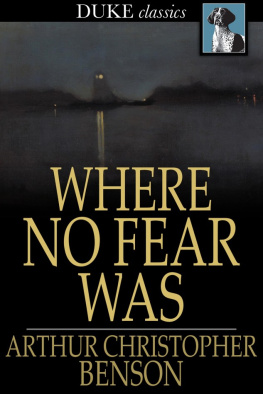
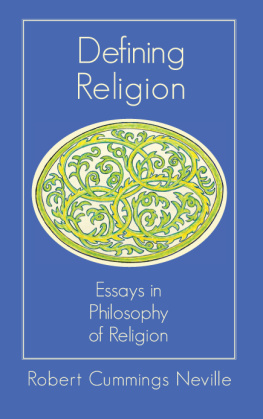
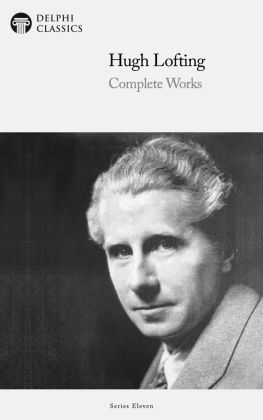
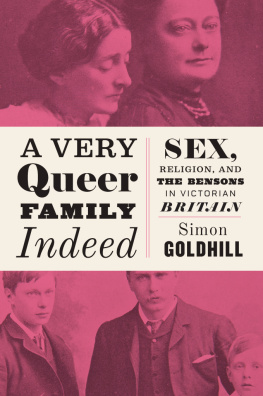
![Robert Hugh Benson [Benson - Robert Hugh Benson Collection [11 Books]](/uploads/posts/book/139831/thumbs/robert-hugh-benson-benson-robert-hugh-benson.jpg)
